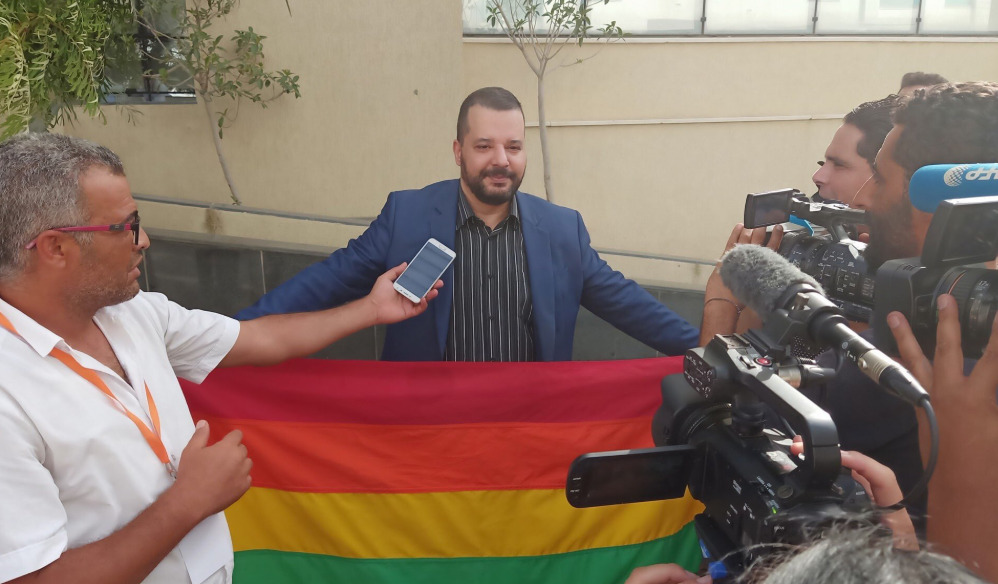Arab world’s first openly gay presidential candidate facing opposition from LGBTQ groups
Lawyer and LGBTQ activist Mounir Baatour has entered Tunisia's presidential election race - but he's proving a controversial figure.
By Will Stroude

Words: Will Stroude
An openly gay lawyer has announced his candidacy for the upcoming Tunisian presidential election in a historic first for the Arab world – but his campaign is already facing fierce criticism from LGBTQ groups who’ve branded him a “danger” to the community.
Mounir Baatour, chief of Tunisia’s Liberal Party, confirmed his candidacy for President of Tunisia this week, promising “an economic, social, cultural and educational programme for everything that affects Tunisians in their daily lives,” The Journal reports.
“The fact that I’m gay doesn’t change anything. It’s a candidacy like all the others,” Mr Baatour told AFP.
The Liberal Party heralded the news as “a first which will without doubt be a benchmark in history”, but while Mr Baatour is committed to pursuing LGBTQ equality in Tunisia – where the crime of ‘sodomy’ is punishable with up to three years in prison – personal and political controversies have seen various local LGBTQ groups publicly denounce his candidacy.

A petition co-signed by 18 Tunisian LGBTQ groups before Mr Baatour’s election run was confirmed claimed the lawyer and LGBTQ campaigner – who is also the head of Tunisian LGBTQ rights group Association Shams – “does not represent in any way the LGBTIQ+ community or our movements in Tunisia.”
Citing allegations of innappropriate behaviour with minors, the outing of LGBTQ people as a campaigning tactic and supporting the ‘normalistation’ of relations with Israel, the groups said they “would never support someone just because of his sexuality/gender identity/ gender expression.”
Mr Baatour was jailed for three months in 2013 for ‘sodomy’ with a 17-year-old student – something Mr Baatour has always denied.

Tunisians will head to the polls on September 15, and while Mr Baatour remains committed to challenged Tunisia’s criminalisation of homosexuality whether in or out of office, the signs indicate queer Tunisians face an uphill struggle when it comes to pursuing greater freedom.
While some nations banning homosexuality may rarely enforce their anti-gay laws, Tunisia has actually increased in LGBTQ prosecutions over the last few years: Figures from Association Sham reported by The Guardian indicate that 127 arrests under the country’s colonial-era anti-sodomy law were recorded in 2018, compared with just 79 in 2017.
The government has also reportedly used forced anal examainations to ‘prove’ guilt in sodomy cases, with refusal to submit to the tests also considered an admission of guilt.
